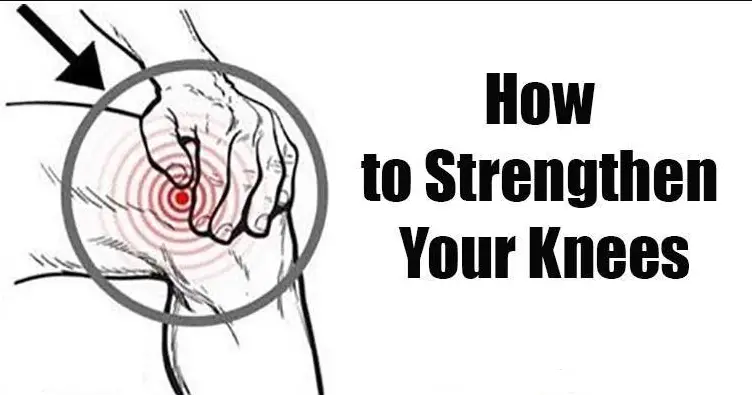The knee is one of the largest joints of the human body and bears the entire body weight. The knees can often come to a different condition and also painful. We should take care of them because they are responsible for our stability and flexibility of our legs.
Older people have less calcium and they have much more problems because the bones of their joints start to rub.
Most common causes for weak knees are: Osteoarthritis, Violation of the knee, Inflammation of the tendons and joint capsule, Flat feet, Excessive weight.
You can treat the pain naturally and avoid problems with your knees by following the next 10 tips:
Consume more Calcium
Calcium is an important mineral because it has a key role in bone health. The deficiency of it causes thinning and weakening of the knees so it’s recommended taking supplements and eating food rich with calcium. Dairy products such as yogurt, milk and cheese are rich with calcium, which the same can be found in canned salmon and sardines with bones, in some nuts, seeds and soy products, as also in juices and cereals.
Anti-inflammatory foods
Тo prevent inflammation you should not eat and drink things that cause inflammation. To avoid weakening of your knees it’s never late to start consuming foods like avocados, flaxseeds, kale, salmon, sesame, sardines, orange juice, soy milk, etc.
Swimming
For sore knees and arthritis you need to do great exercises that strengthen the knee. Swimming half an hour a day can reduce stiffness of the knees. With correct strokes like butterfly stroke, front crawl and backstroke you can have better results.
Exercises
Beneficial exercises can be pulling the legs, raising the legs, raising the bent leg, straight leg, raising.
You should consult with your doctor for the exercises that you should do. It’s recommended 4-5 times a week for about half an hour.
Vitamin C
This vitamin is found in fruits and vegetables and it’s soluble in water. It’s also important for the synthesis of collagen which is crucial for the proper development of the bones.
You can consume it naturally with food such as lemons, spinach, broccoli, oranges, kiwi and like supplements recommended from doctor.
Epsom salt
People with sore and weak knees often have a shortage of magnesium. Epsom salt is a naturally pure mineral compound of magnesium and sulfate. It helps the absorption of calcium in the muscles. Epsom salt bath relieves knee inflammation, making it beneficial in the treatment of sore muscles and knees.
To take a bath you need 2 tablespoon of it in a half cup of water and soak a washcloth. Then hold it 15-20 min on the knee and then wash it with warm water.
Also you can enjoy in Epsom salt warm bath once or twice a week.
-
Vitamin D
This vitamin is made naturally in the human body when it is exposed to the sun. For all we know that it is particularly important for the bones. It helps for easier absorption of calcium.
The lack of calcium leads to rickets in children and osteoporosis in adults.
-
Massage
If you don’t know how to release your knee pain, than a good choice would be a massage from physiotherapist.
Experts recommend to avoid discomfort and also to help one’s body to recover faster after each massage running or vigorous exercise.
-
Fish oil
Fish oil is an excellent source of vitamin A,E as well as polyunsaturated fatty acids.It Is recommended as a dietary supplement for children and adults in case of lack of vitamins A and D in the diet, especially in spring and winter. It increases defensive ability in the organism and provides strong bones, good eyesight and healthy skin. Due to the increased daily needs especially recommended for children in the growth phase.
-
Body weight
Another reason for sore knees is excess body weight which causes pressure on the knees and pain. Overweight and obesity are defined as abnormal or excessive fat accumulation that may endanger health. To fix that problem you must lose weight.
There are few more additional tips
- Go to cycle or take a walk
- Do more yoga
- Avoid smoking and drinking
- Do not wear high heels
- Do not do activities that intensify your knee
- Avoid twisting, jumping and stopping
- Limit the salt

